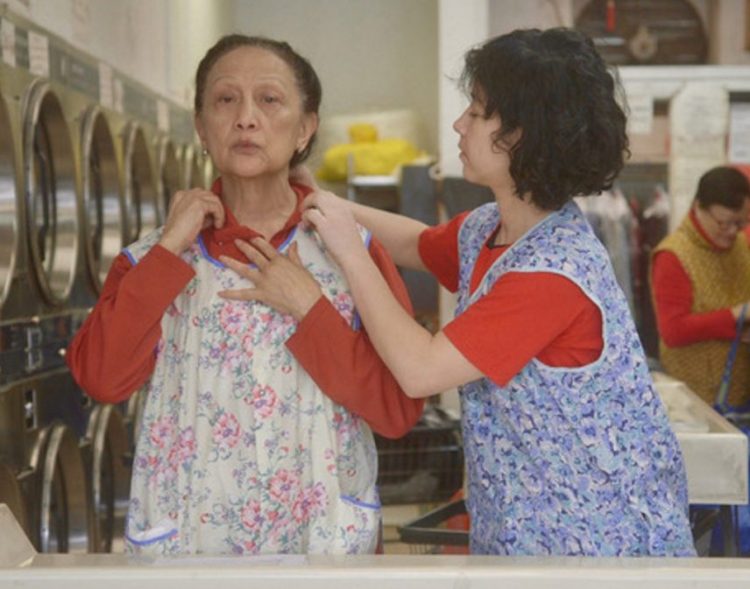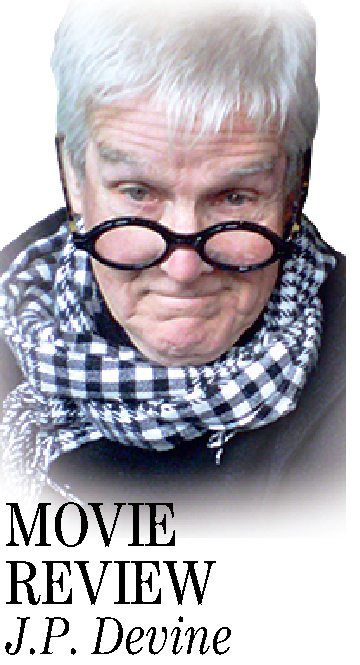This week the Maine International Film Festival will proudly present a double bill of two 45-minute documentaries: “Charlie Chaplin Lived Here” by Scottish filmmaker Bill Douglas; and the most important presentation of this or any year’s film festival, the magical “Washing Society,” a brilliant documentary by Lizzie Olesker and Lynne Sachs.
“The Washing Society”
In July of 1888, a group of African-American washerwomen in Atlanta, Georgia, shook off the heat and humidity to move towards the impossible thing for former slaves to do. They organized themselves to acquire better wages and working conditions. They decided to strike.
There were 20 of them at the time. They went door to door in the city, and raised awareness and recruited sisters.
In three weeks, they grew in numbers from 20 to 3,000 members. That’s a lot of sweaty white folks’ laundry, and the strike worked.
The great forces of white supremacy went to work, as they do even to this day, to suppress the movement.
The women sent an ultimatum. I quote: “We the members of our society, are determined to stand to our pledge and make extra charges for washing, and we have agreed, and are willing to pay $25 or $50 for licenses as a protection, so we can control the washing for the city. We can afford to pay these licenses, and will do it before we will be defeated, and then we will have full control of the city’s washing at our own prices, as the city has control of our husbands’ work at their prices. Don’t forget this. We hope to hear from your council Tuesday morning. We mean business this week or no washing.”
Don’t be thrown by the title and classification. This is no dry, droning documentary. This is a slice of life, a celebration of humanity from the historic Atlanta washerwomen to the New York City workers of today in swirling brilliant color — color that comes from the flesh, hair and eyes of the workers, and the mountains of laundry they deal with every day, underwear, socks, sheets, shirts. One has to see it to believe it.
The film ends with a chilling narration that speaks of the end of an era and these establishments.
“Things change. My neighborhood laundromat where I used to wash my clothes has been replaced by a cafe and clothing shop. Most of the city laundromats have disappeared.
“Now there is an app with a woman’s name. Not a she, but an ‘It,’ a laundry service on your phone that picks up your clothes at 10 p.m., moved down a street to a catacomb somewhere, to be done in a machine that runs all night.
“With the sunrise your clothes will be returned to you. You’ll never see those hands or the person they belong to, it’s guaranteed.”
Things change, indeed.
“Charlie Chaplin Lived Here”
This year, MIFF is delighted to host the world premiere of “Charlie Chaplin Lived Here,” by U.K. filmmakers Sean Martin and Louise Milne.
This is a loving, affectionate tribute and history of one of the world’s pre-eminent film magicians. “Charlie Chaplin Lived Here” is a semi-sequel to Lanterna Magicka: Bill Douglas and “The Secret History of Cinema,” a documentary about Scottish filmmaker Bill Douglas’ lifelong Charlie Chaplin obsession, and includes a completion of Bill’s 1969 unfinished 8mm documentary, “Charlie Chaplin Lived Here,” which features never-before-seen footage of Chaplin’s London (a number of locations have long since been demolished) as well as a voiceover from Chaplin’s “My Autobiography.”
It seems that Charlie’s face, the baggy pants, crumpled hat and swinging cane will never completely vanish. Here he is again to refresh our memories with all the details of life, from his Dickensian childhood, seeing his mother put away in a home for the insane, and his rise to universal stardom.
J.P. Devine, of Waterville, is a former stage and screen actor.
Send questions/comments to the editors.




Comments are no longer available on this story